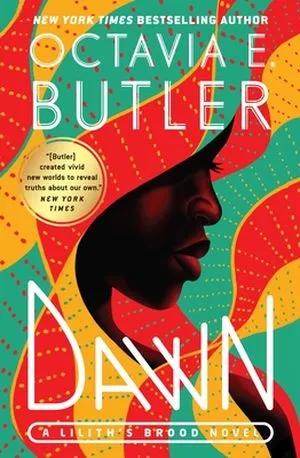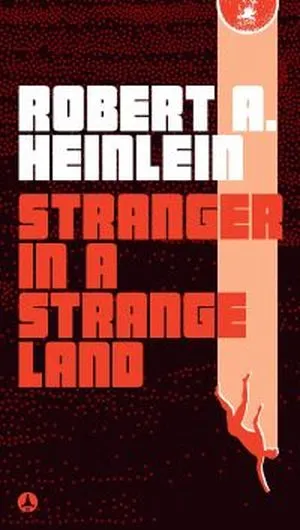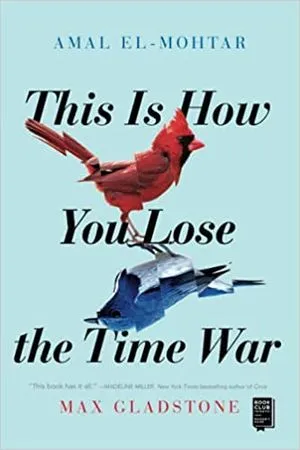
8 Science Fiction Books that are Impossible to Adapt to the Screen
We seem to be living in an era when impossible-to-adapt science fiction novels are, in fact, getting adapted. Just look at the recent success of Denis Villeneuve’s Dune films or the incredible Foundation series on Apple TV+. Both of these are based on book series formerly considered impossible to adapt: remember all of the terrible attempts to adapt Dune before?
And yet, that doesn’t suddenly mean that any and all science fiction novels are adaptable. While plenty are out there that would just be wildly expensive to adapt, we all know that studios will spend that cash if they think they can make it back. The real challenge is the science fiction novels that are too philosophical, too trippy, or just too much in their protagonists’ heads to ever make sense on screen.
Then again, all it takes is the right adaptation, the right approach to communicating the central themes of a story to a completely different medium. I’d certainly like to see these adapted well. It would take a great understanding of how ideas are communicated differently using different mediums. Nevertheless, here are eight science fiction novels that are impossible to adapt.

Ancillary Justice by Ann Leckie
Ann Leckie’s Imperial Radch series focuses on a single person who used to be part of a much larger AI, one that governed a warship. The theme of consciousness and self is huge in the series, and that’s a difficult concept to translate to a visual medium like film. Perhaps it’s possible with A LOT of voiceover work, but it’s hard to imagine being done well.

Culture Series by Iain M. Banks
Banks’s Culture series is one of the best in terms of high-minded, hard science fiction. While each book is brilliant and you don’t need to read them in any particular order, they all deal with big philosophical questions. Idealism, moral high ground, and the responsibility of technology are all at play, and those themes would be easily lost on film.

Dhalgren by Samuel R. Delany
Dhalgren is a towering classic of science fiction. Strange things are happening in an eerie, unknown U.S. town. Into this place wanders a poet and adventurer, the Kid. Somehow, this amnesiac wanderer is tied to the fate of this forsaken place and all who remain there. The book is over 800 pages and is a mind…um…fudge. Yeah. It’s trippy and deep and wildly cerebral, and it’s hard to imagine it translating on screen.

Dawn by Octavia E. Butler
On the surface, Dawn seems like an easy adaptation. Hundreds of years after the death of Earth, Lilith awakens as part alien, being asked to repopulate her home planet. Space, aliens, apocalypse! That sounds like the recipe for a fun sci-fi summer blockbuster. Yeah, except that would overlook the much deeper questions about humanity that the book is asking, turning a brilliant book into a popcorn flick.

The Genesis of Misery by Neon Yang
For a much more recent novel, this book from Neon Yang is another that feels like it has the makings of a blockbuster. Galactic empires and giant robots, right? Except the book is about galaxy-spanning religions, prophecy, and deep questions of self. Again, I fear the giant robots on screen would get in the way of the real themes this book focuses on.

The Left Hand of Darkness by Ursula K. Le Guin
Here we have another incredible classic from a grandmaster of science fiction. The book answers the basic question: what if there was a race that had no gender? The problem is, an adaptation would be quite boring. This is not an action-oriented novel. There are large swaths of just wandering through the tundra, in fact. It’s a great book that only works as a book.

Stranger in a Strange Land by Robert A. Heinlein
I know, I keep bringing up these classics. But the fact that they haven’t been adapted yet says something, doesn’t it? In the case of Stranger in a Strange Land, this is unadaptable for a number of reasons. The sexual themes that were key in the 1960s would feel exploitative now, particularly with the level of nudity required. And if you thought The Da Vinci Code brought controversy, wait until people start saying, “Thou art god” on the screen.

This is How You Lose the Time War by Amal El-Mohtar and Max Gladstone
This lovely little book is a recent runaway hit of science fiction. It’s like Romeo and Juliet in a time war. The problem is, the two protagonists communicate through strange love letters. There’s little action. There’s very little actual dialog. The audiobook is splendid. On film? Not so much.
What are your favorite science fiction novels that have yet to see a film adaptation? Do you think they can be? Should be?
If you’re looking for sci-fi books that have made it to the screen, check out Kind of a Big Reel: 8 Blockbuster Science Fiction and Fantasy Books Becoming Films. You might also be interested in The Most Influential Sci-Fi Books of All Time.